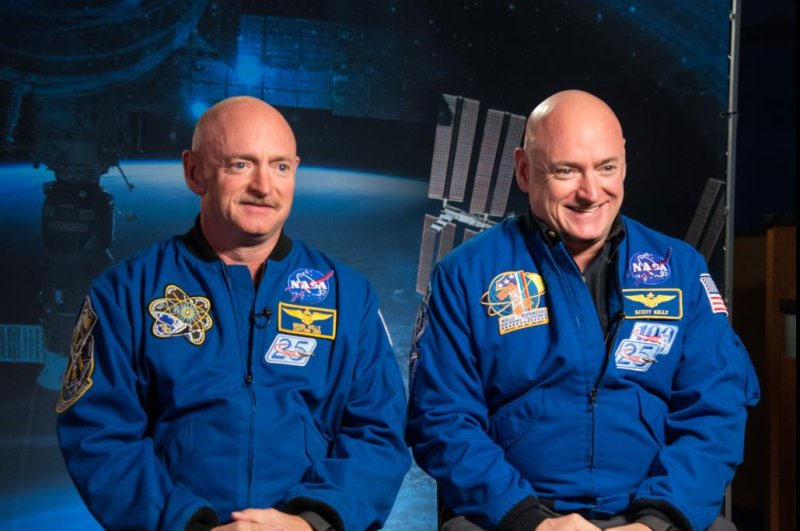NASA built The Twins Study around retired astronaut Scott Kelly, at right, and his twin brother, retired astronaut Mark Kelly, as part of the One-Year Mission to help better understand the effects of space on the human body and push forward the movement toward personalized medicine on Earth. Photo by NASA
HOUSTON, Aug. 4 (UPI) -- NASA has a set of twins among its astronauts, and is using the opportunity to learn more about exposure to the stresses of spaceflight and how those lessons can be applied to personalized medicine on Earth.
The space agency released another video update on the study to coincide with the upcoming annual Twins Days Fesitval.
NASA researchers are applying a set of multiple biological disciplines, so-called omics, to gather data about the health of individuals.
NASA is studying identical twin astronauts Scott and Mark Kelly to learn more about the effects of space on the body. With nearly identical genomes, the project compares Scott, who is in space on a set diet, exercise regimen, and work schedule, and Mark, who is living normal life on Earth.
The Twins Study is a year-long series of ten separate investigations NASA is coordinating as a large project based on the Kelly brothers, who have the same genetics but are in different environments.
Omics combines data on genomics, transcriptonomics, proteomics, epigenomics, metabolomics and microbiomics to see minute fluctuations in DNA, RNA, proteins, metabolites and the microbiome, among other changes in the body, to track the risk for disease or other adverse health conditions.
Researchers say "omics profiles" could become commonplace for Earthbound patients once data interpretaion and storage solutions are devised.
"I am confident omics will be part of upcoming International Space Station missions and the Mars missions," John Charles, human research program chief scientist at NASA, said in a press release. "The potential for this research is valuable in terms of understanding what happens to astronauts in space flight. Additionally, new approaches and techniques we learn from the Twins Study can be used more directly with great benefit to NASA researchers and crews and hopefully to patients here on Earth."















